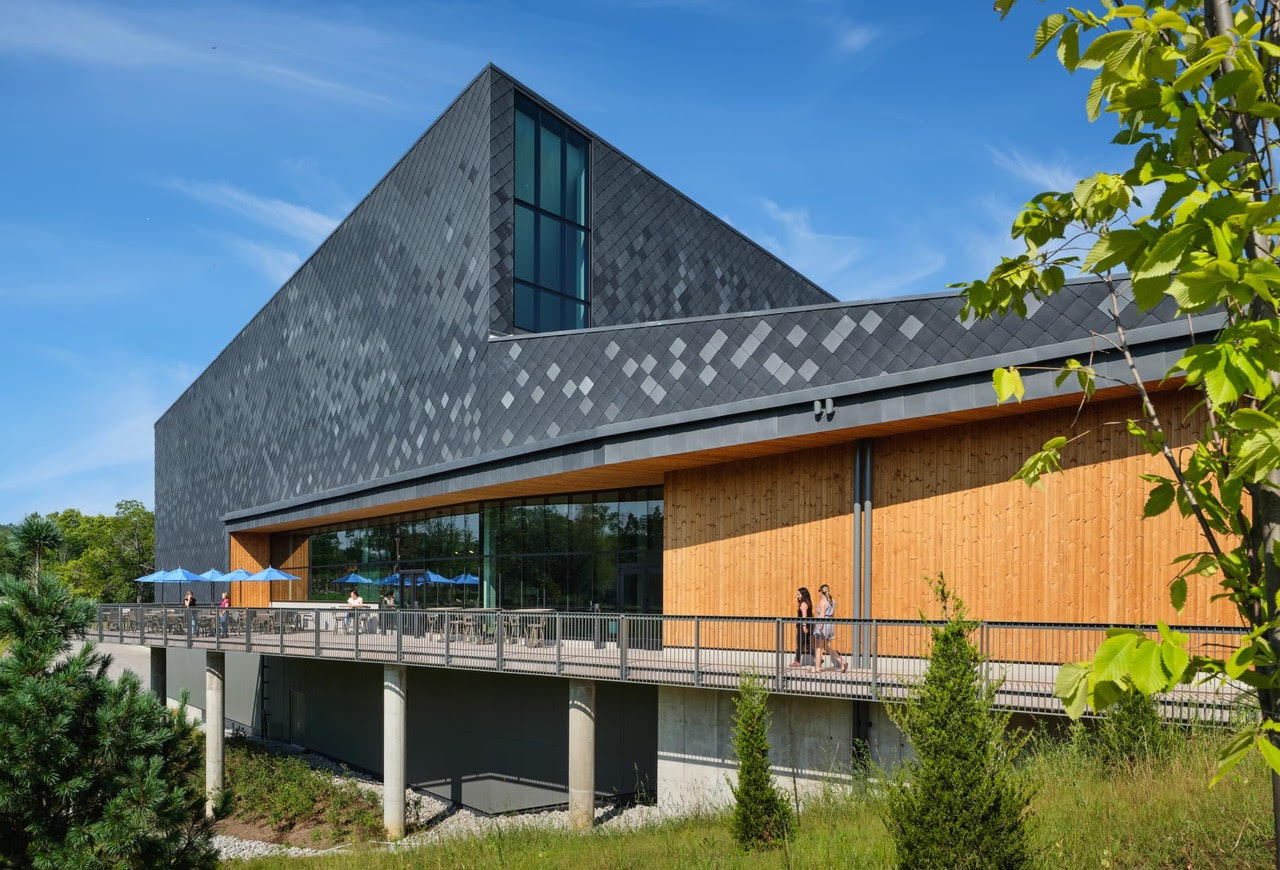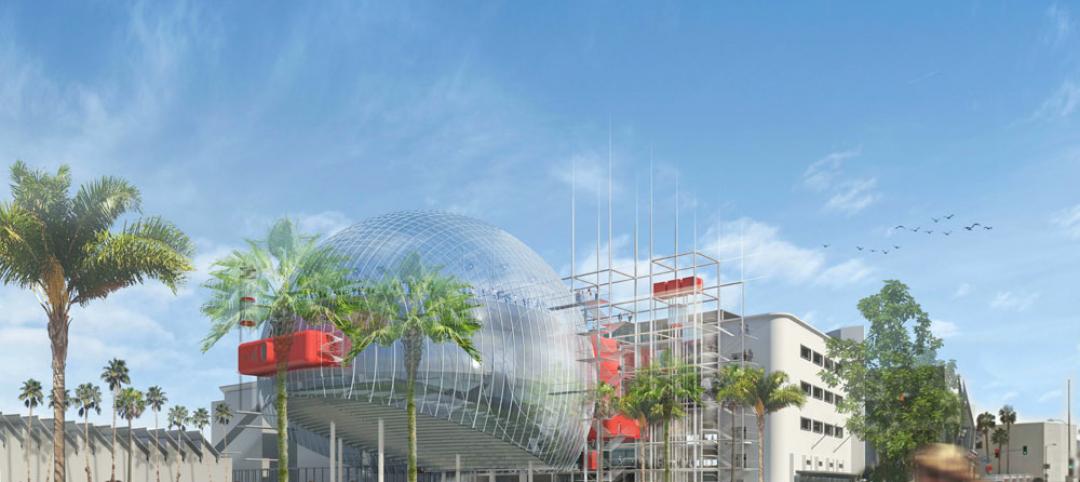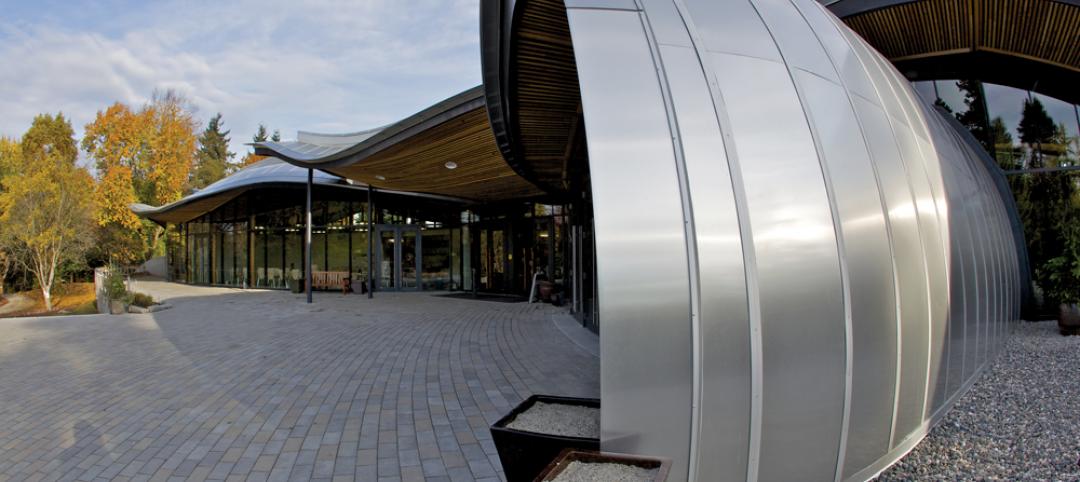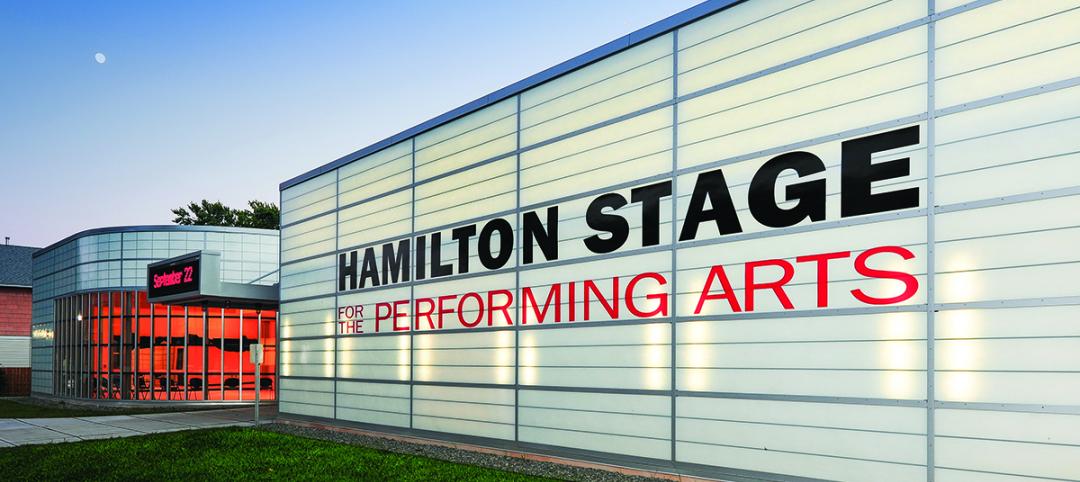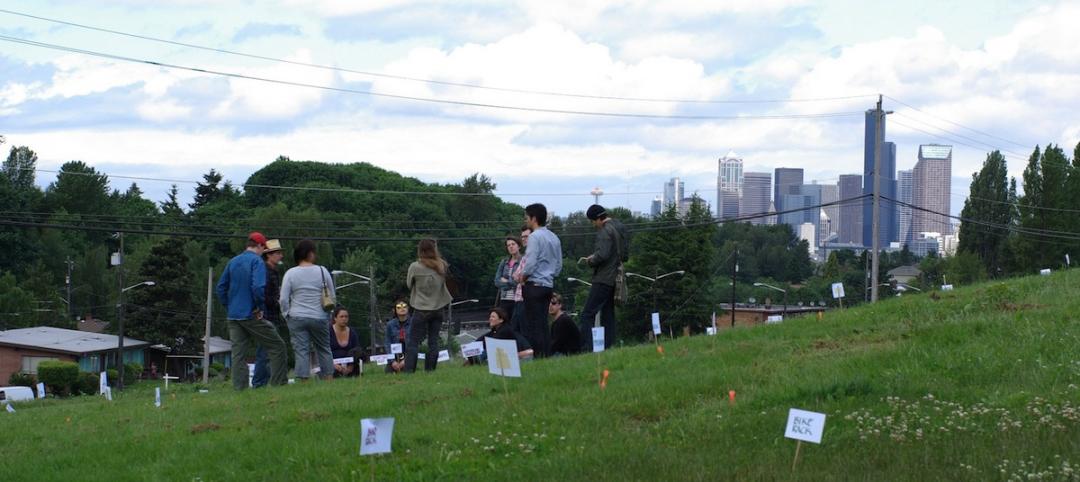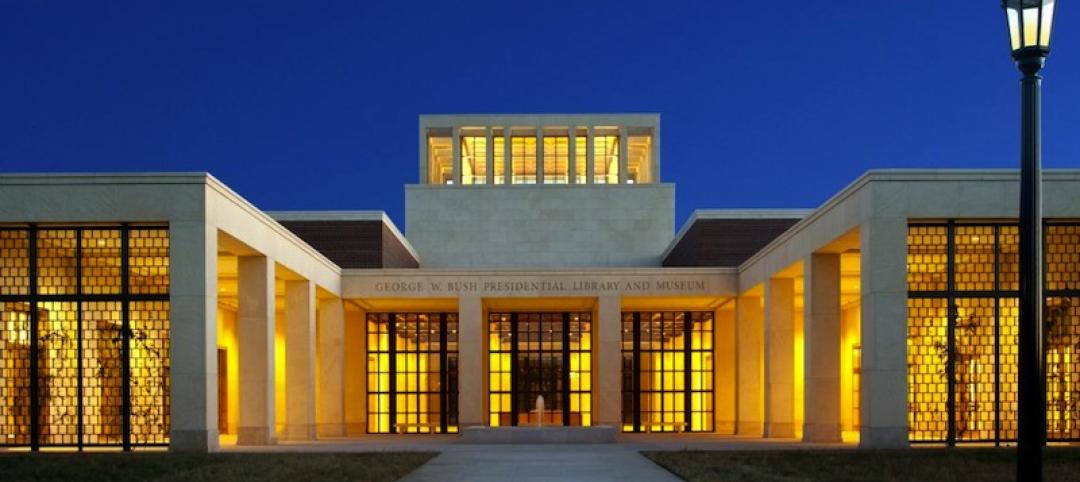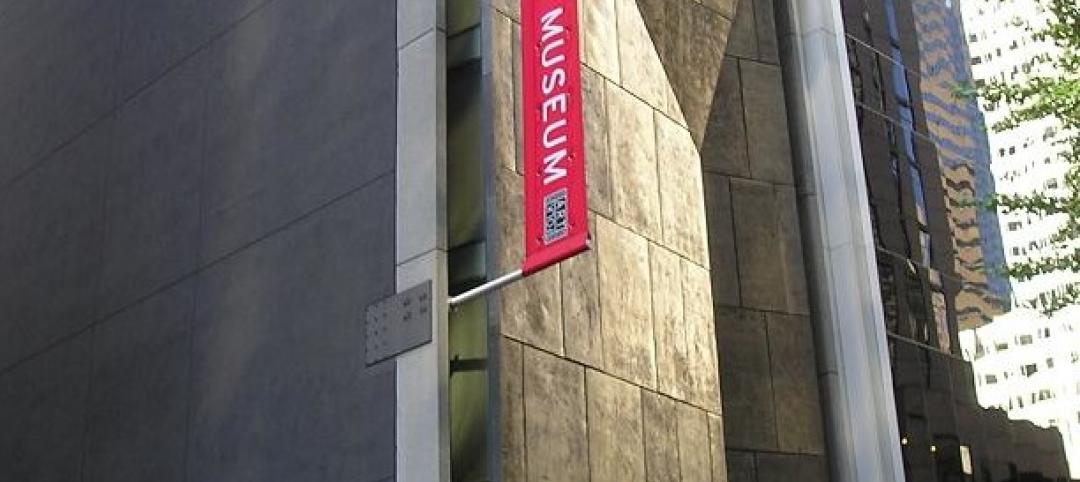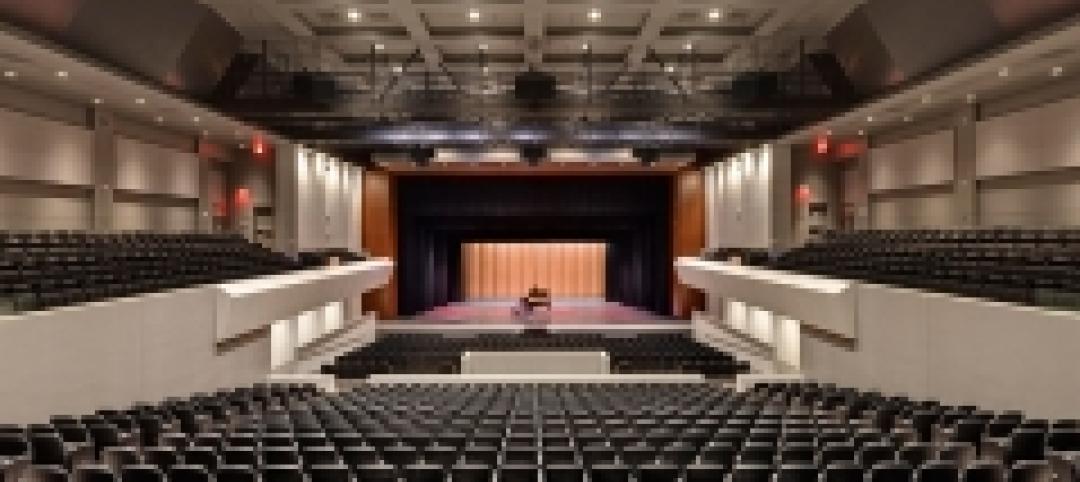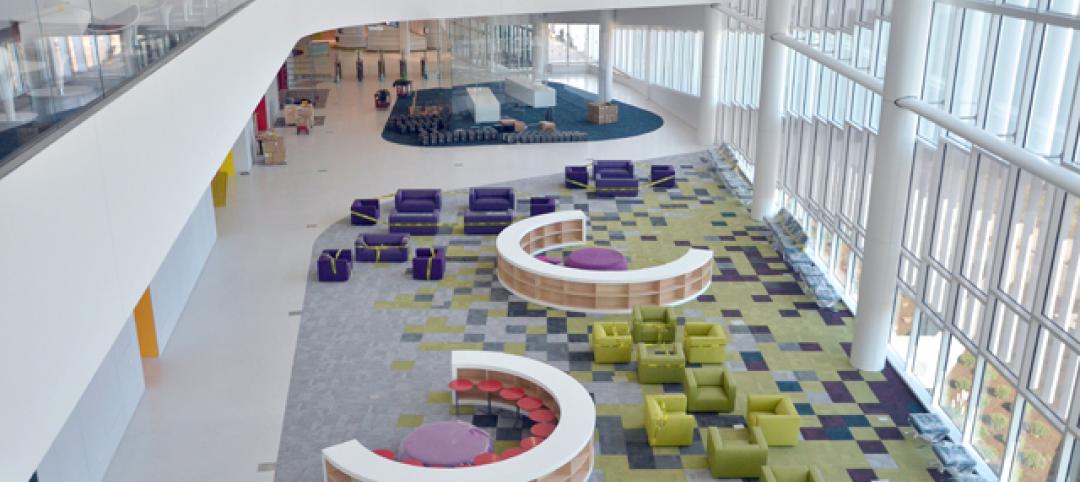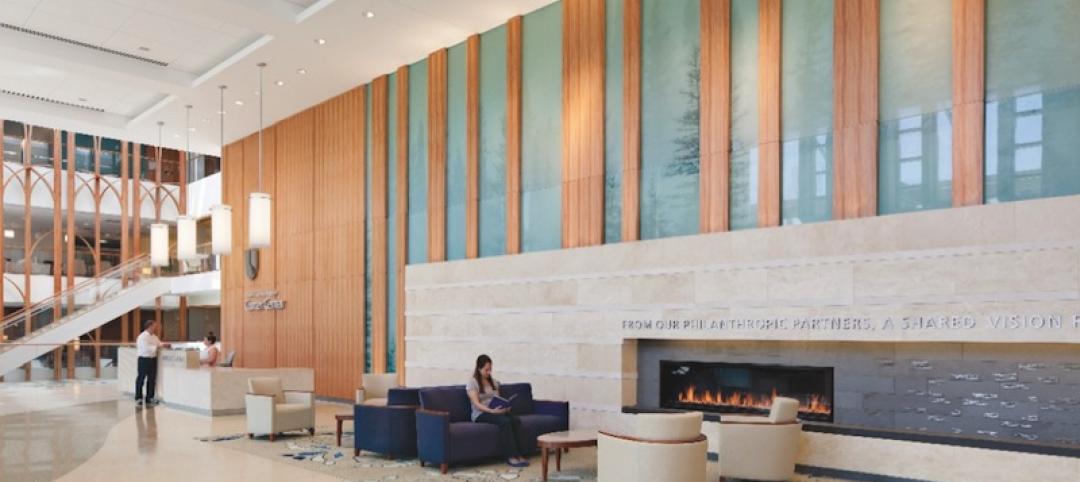Kansas City’s new Sobela Ocean Aquarium is a world-class facility home to nearly 8,000 animals in 34 habitats ranging from small tanks to a giant 400,000-gallon shark tank.
The 65,000-sf facility takes visitors from a shallow tropical shore, following a “warm current into the melting pot of the deep ocean, and is carried via a cold current from the depths, through the ocean’s forests, emerging at a cool Pacific coast,” according to a news release.
Exhibit designs by Spacehaus integrate with architectural cues such as changing light quality, spatial variation, and physical descent. The experience augments unique exhibit designs “to engage visitor’s emotions, spark their curiosity, and build in them a passion for the ocean.”
“This project creates that opportunity for all, introducing visitors to our global ocean by using the concept of marine currents as an interpretive framework,” according to lead architect EHDD.
“Despite holding nearly 650,000 gallons of water in total, the aquarium has obtained a LEED silver certification,” says David Dowell, AIA, principal of El Dorado who led the support architecture team. “Some of the sustainability goals include capturing stormwater on site, significantly reducing water and energy use, and maximizing natural light while also bird-safing the structure through fritted glass.”
The aquarium is the first project in the Kansas City area to use CarbonCure technology, which introduces captured CO₂ into fresh concrete to reduce its carbon footprint by 22%.
The aquarium is now the largest building on the zoo campus. It opens to the zoo’s main pedestrian promenade with an image that is welcoming in scale, and warm in materiality. Located in Swope Park in Kansas City, Mo., the Kansas City Zoo & Aquarium, founded in 1909, spans 202 acres and receives about one million visitors per year.
Owner and/or developer: Sobela Ocean Aquarium at the Kansas City Zoo and Aquarium
Design architect: EHDD and El Dorado
MEP engineer: Antella
Structural engineer: Leigh & O'Kane
General contractor/construction manager: JE Dunn
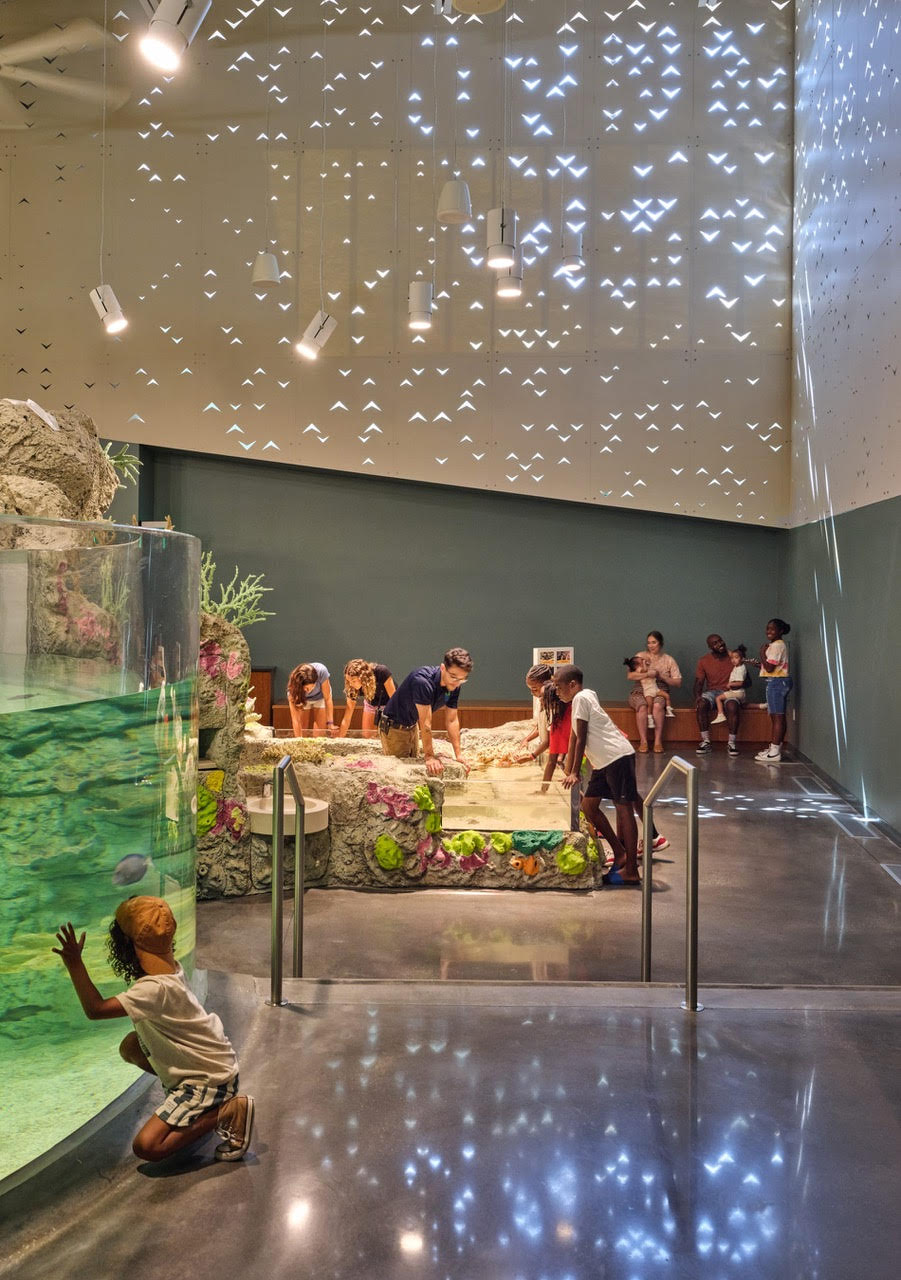
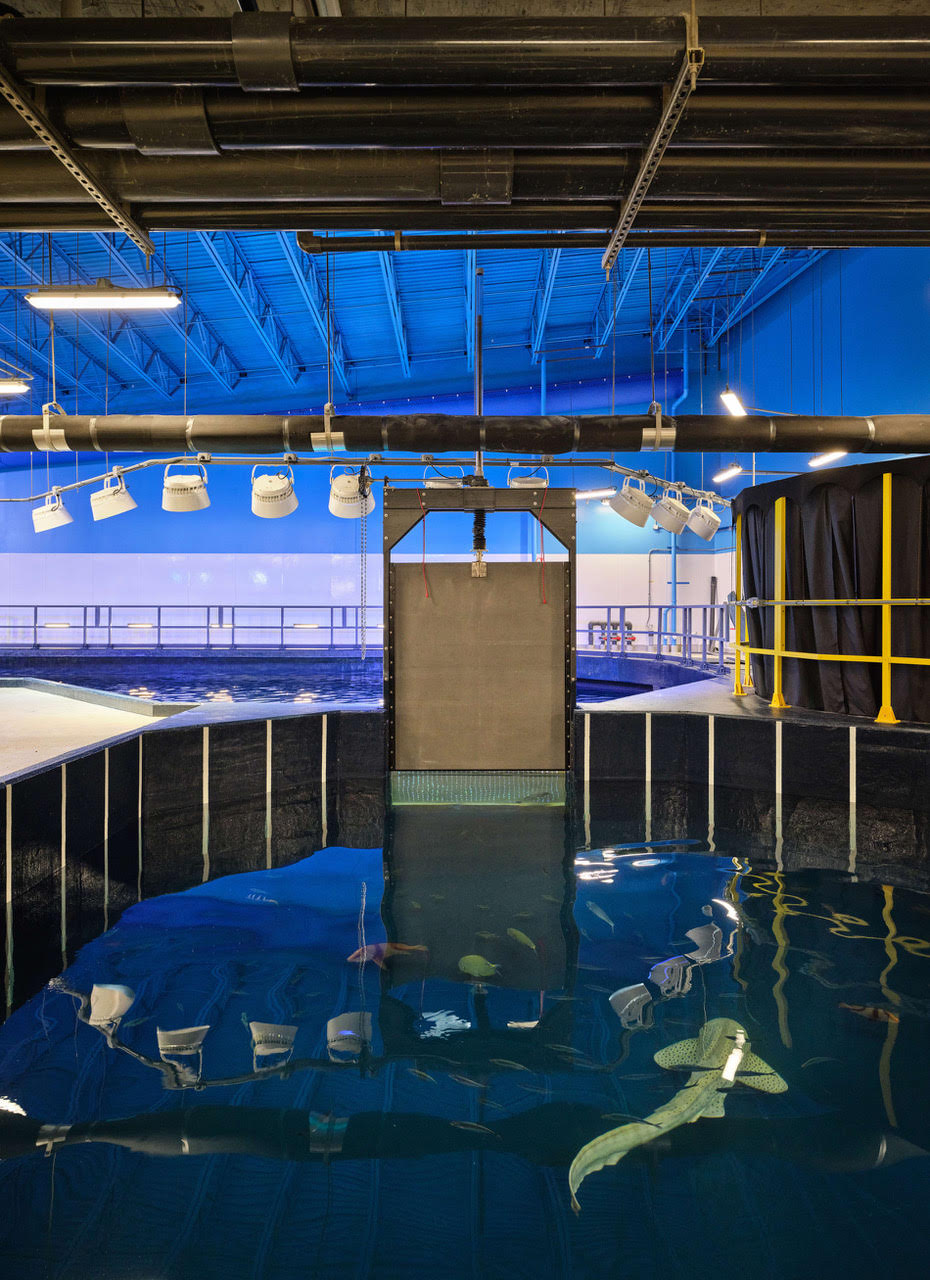
Related Stories
| Apr 17, 2013
First look: Renzo Piano's glass-domed motion pictures museum
The Academy of Motion Picture Arts and Sciences last week released preliminary plans for its $300 million Academy of Motion Picture Arts and Sciences museum in Los Angeles, designed by Renzo Piano and local architect Zoltan Pali.
| Apr 16, 2013
5 projects that profited from insulated metal panels
From an orchid-shaped visitor center to California’s largest public works project, each of these projects benefited from IMP technology.
| Apr 12, 2013
Nation's first 'food forest' planned in Seattle
Seattle's Beacon Food Forest project is transforming a seven-acre lot in the city’s Beacon Hill neighborhood into a self-sustaining, edible public park.
| Apr 12, 2013
Chicago rail conversion puts local twist on High Line strategy
Plans are moving forward to convert an unused, century-old Chicago rail artery to a 2.7 mile, 13 acre recreational facility and transit corridor.
| Apr 11, 2013
George W. Bush Presidential Center achieves LEED Platinum certification
The George W. Bush Presidential Center announced today it has earned Platinum certification by the U.S. Green Building Council’s Leadership in Energy and Environmental Design program. The Bush Center is the first presidential library to achieve LEED Platinum certification under New Construction.
| Apr 11, 2013
American Folk Art Museum, opened in 2001, to be demolished
Just 12 years old, the museum designed by Tod Williams and Billie Tsien will be taken down to make way for MoMA expansion.
| Apr 5, 2013
Snøhetta design creates groundbreaking high-tech library for NCSU
The new Hunt Library at North Carolina State University, Raleigh, incorporates advanced building features, including a five-story robotic bookBot automatic retrieval system that holds 2 million volumes in reduced space.
| Apr 2, 2013
6 lobby design tips
If you do hotels, schools, student unions, office buildings, performing arts centers, transportation facilities, or any structure with a lobby, here are six principles from healthcare lobby design that make for happier users—and more satisfied owners.


